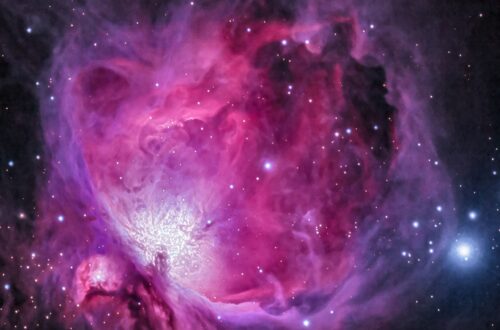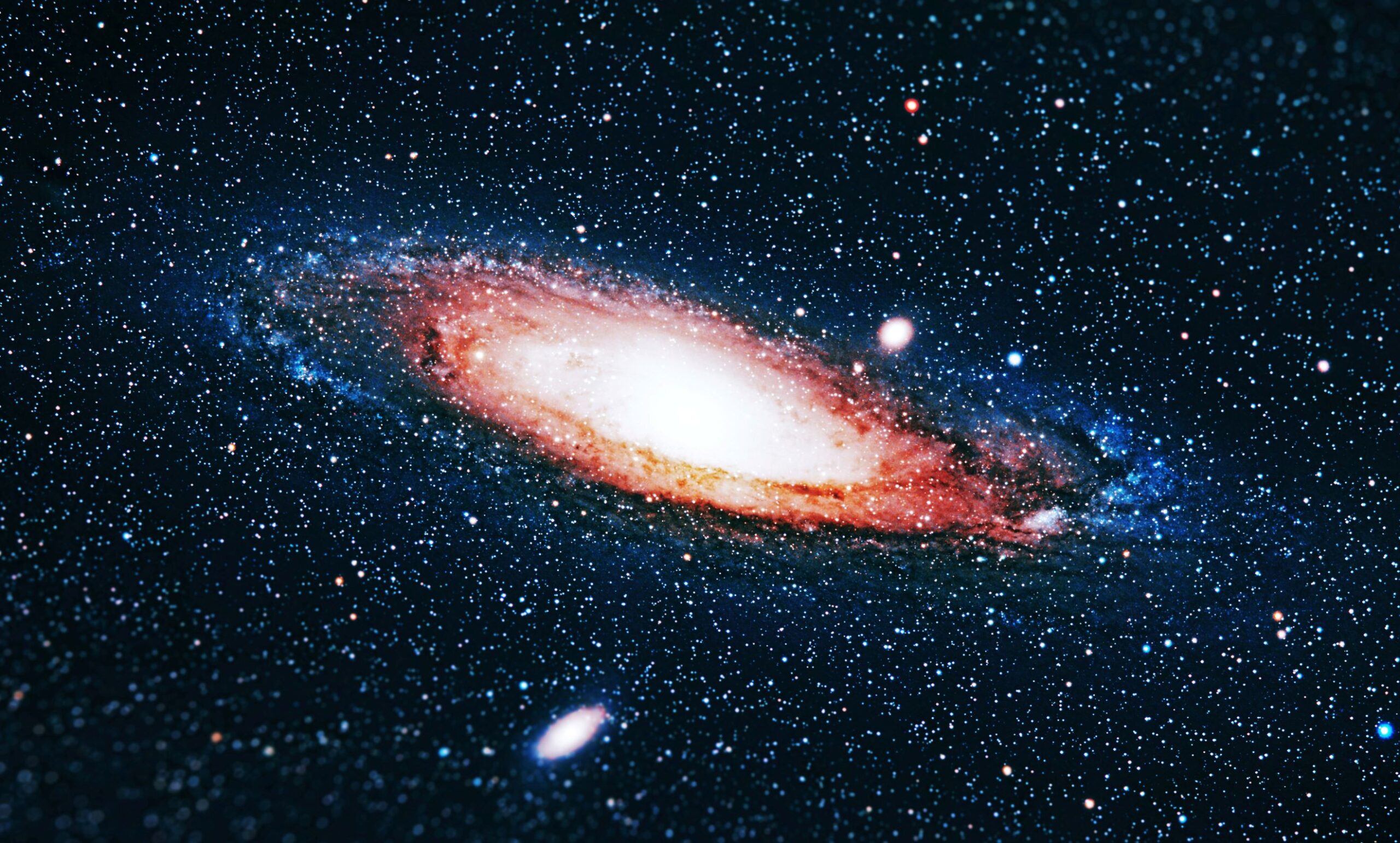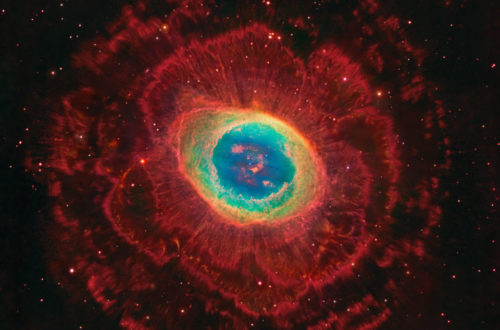
What is the Universe?
A friend asked me, “What is the Universe?” In thinking about how to answer this simple yet profound question, I decided there were two ways of looking at it.
Two Ways to View the Universe
We could look at the universe as it is outwardly, or we could look at it inwardly.
Outwardly we could say the universe is what we see when we look up at the stars at night. It is the moon, the planets, the sun, the galaxies, the supercluster of galaxies and so on.
That’s pretty simple, but what is the universe inwardly. The universe inwardly is my experience of the universe, and what is that? Before we get into that, let’s examine the problems inherent in a purely objective view of the universe.
Well for one thing, the outward definition of the universe I gave is limited by our senses.
Our Senses Lie to Us
Remember, we only see 0.0035 percent of the light spectrum, so we don’t see the universe as it really is; we only see what our sensory apparatus allows us to see.
For example, let’s take a look at vision. Vision is light waves bouncing off an object, say the moon at night, and entering our eyes where it travels down our optic nerve and into our brain. There, our brain transforms the light waves into a picture.
The question is, does the picture our brain creates, match the moon as it really is? The answer is we don’t know. We can’t get outside of our own minds to compare the two views. We are stuck inside our own heads limited to our own view.
Since we are an arrogant species we assume that the way we see it, is the way it is. We think, “the moon is the moon and it exists just as we see it”; case closed.
We even think that because others see pretty much the same moon we do, that verifies the accuracy of our perception.
This view is based on the idea that there is an objective world that exists outside of us and our senses, like a camera, accurately take a snapshot of it.
Hume Exposes the Limits in the Outward Definition of the Universe
That’s what modern philosophers thought until the Scottish philosopher, David Hume, pointed out the flaws with this perspective. He took this view to its logical conclusion saying not only couldn’t we say anything meaningful about the universe, we couldn’t say anything meaningful about anything
Hume said we can never view the world as it is because all we experience is one fleeting sensory input after another, meaning we have no experience of anything that underlies all those sense experiences.
If our experiences of the universe are just one sensory experience after another with no sense of a connecting link that would hold them all together, then we really can’t know anything meaningful about the universe. All we can know is one damn sensory input after another.
The Copernican Revolution in Philosophy
This was too much for the German Idealist philosopher, Immanuel Kant, who then instituted what he called the “Copernican Revolution” in philosophy.
If we remember, the original Copernican revolution in science was the change from viewing the universe as the sun orbiting the earth, to the earth orbiting the sun.
This was counterintuitive for a lot of people. It defied their everyday experience of seeing the sun go around the earth as it rose in the east and set in the west.
Well, in that same way Kant changed philosophy. Previously, and I imagine still, some philosophers, scientists, and a number of everyday people, continue to believe our knowledge revolves around studying the universe outside ourselves, trying to discover its hidden laws.
But since that view led to a dead end in knowledge, Kant realized, something had to change. So, he said instead of that old view of our minds revolving around the universe, the universe revolves around our minds. In other words, we see the universe as we do because of the inborn structures of our minds and senses. It is similar to the earlier example I used with the limited vision of light we have.
The Copernican revolution in philosophy changed everything. Now instead of focusing exclusively on the outer world, we need to focus more on our inner world. We can’t understand the universe until we grasp how we perceive the universe, and come to grips with the notion that we may not see it as it really is.
Some people might still be skeptical of this position. They want to fall back on the fact that other people see basically the same universe we do. That could be seen as objective proof, but it’s not.
The Red Sunglasses Example
Imagine that everyone is born with red sunglasses attached to their eyes. Since everybody has the same apparatus, we wouldn’t think much about it. It’s just part of our eyes.
But when we all then claim the universe has a reddish tint to it, and justify it because everyone sees the reddish tint; we know there is a flaw here. We know the reddish tint we see is not in the universe, but is the result of the red sunglasses attached to our eyes.
We are projecting that redness out onto the universe, and we all agree because we all are equipped with the same apparatus that projects the same thing.
We could, as modern science would like us to do, just accept the universe is red, or we could institute Kant’s Copernican Revolution and decide that maybe, to really see if the universe is red or not, we first need to examine ourselves. If we did, we would quickly discover that we were projecting the red out onto the universe, realizing in the process, that we have no idea what color the universe is.
This makes our purely objective definition of the universe we gave earlier, very limited.
So, in order to answer the question, “What is the Universe?” we have to go beyond just an outer view of the universe.
The Universe is an Experience
So, I like to say, the universe in the end, is an experience. We don’t know what the universe is in itself. All we know is our experience of the universe. It is here that we might think about using other aspects of our mind beyond our five senses and our reasoning, the latter being mostly based on our five sense experience.
We might call on our intuitions and deeper feelings to give us insights. Instead of just seeing objects in the sky, perhaps we can begin to appreciate the feelings of awe associated with viewing the universe, particularly at night.
Instead of giving a scientific definition of why a sunset can be so beautiful, why not just sit there and experience its beauty. When we do that, we feel connected to the whole thing. We realize we are a part of it all.
As we look up into the night sky, we are looking back at our origins. The more powerful our telescope, the farther back we can look.
We have gained a lot of valuable knowledge in studying the universe in our objective manner, but it has led us to believe it is just an object, a thing with no inherent worth.
The Universe is Not a Thing; It is Who We Are
We need to institute Kant’s Copernican Revolution in ourselves so we can also witness the beauty of the universe and experience it as who we are. When we do that, we will feel not only closer to the universe, but also to our own small earth snuggled away in its immensity.
Maybe we can also then stop seeing the earth as an object to be exploited and realize it is our home and like our mother, it sustains us. How then can we justify committing matricide, the killing off our own mother? Unfortunately, this is what we are doing.
Unless we turn inward and experience this connection, we are heading toward a dangerous future.
As the United Nations secretary general, Antonio Guterres, said on Monday at the COP27 summit,
“We are on a highway to climate hell with our foot still on the accelerator.”
So, in the end, what is the universe? The universe is us and nothing more.
I hope people think about that as they go to vote whenever their next election is.
To learn more about the magic of the universe: Click this link: The Magical Universe.
Image by Gerd Altmann from Pixabay




